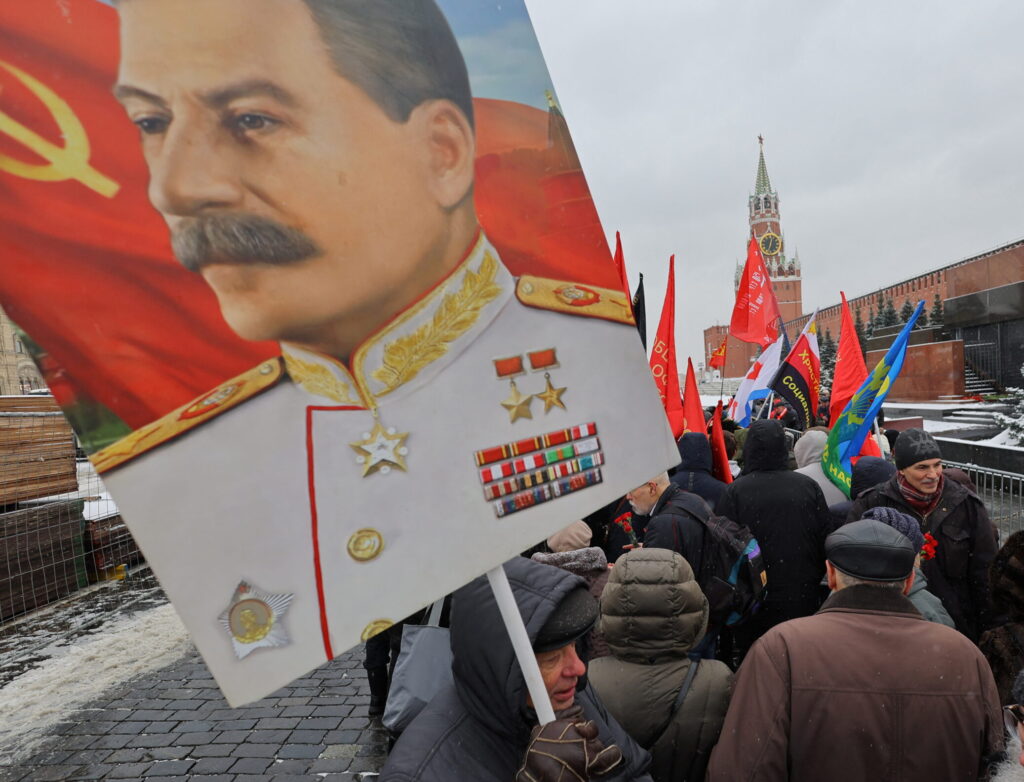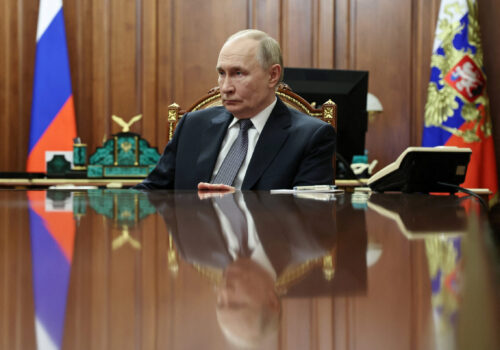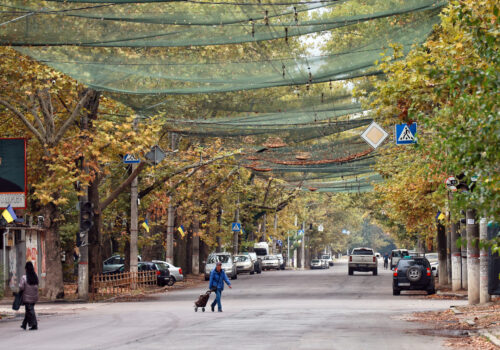US President Donald Trump’s latest bid to broker a deal between Russia and Ukraine has sparked a flurry of diplomatic activity in recent days, with officials from Washington, Kyiv, Moscow, and across Europe all seeking to shape the contours of a possible agreement. For now, discussion has centered on immediate matters, such as the wording of security guarantees. However, the far deeper historical roots that have long driven Russian violence against Ukraine also hold important policy implications for any peace process.
Given Moscow’s enduring ideological extremism toward Ukraine, renewed attempts at hidden and open warfare are likely. For this reason, the lasting success of Trump’s plan will depend not only on its terms, but on the strength and logistics of the enforcement measures that accompany it.
Moscow’s current aggression against Ukraine is neither new nor unprecedented. It is, in fact, the latest iteration of a centuries-long Russian campaign to Russify and erase the Ukrainian people. From Peter the Great to Stalin and Putin, generations of Russian tyrants have directed violence at Ukrainians in ways that are deliberate, systematic, and filled with an ideological fervor that must be confronted.
Every city the Russian military bombs, every child it kidnaps, every Ukrainian life it destroys today can only be understood within the long genealogy of Russia’s imperialistic state ideology. For centuries, this violent brand of expansionism has been directed at Ukraine.
Stay updated
As the world watches the Russian invasion of Ukraine unfold, UkraineAlert delivers the best Atlantic Council expert insight and analysis on Ukraine twice a week directly to your inbox.
The present full-scale invasion of Ukraine will soon pass the four-year mark, but the war did not begin in 2022. It was preceded by eight years of warfare in eastern Ukraine following Russia’s 2014 seizure of Crimea. This has been recognized by the European Court of Human Rights, which has ruled that Russia has been conducting sustained military operations in Ukraine since at least 2014. But even this is only the most recent chapter in a far older story.
During the eras of the Russian Empire and the Soviet Union, the authorities consistently pursued policies aimed at dismantling Ukrainian identity. Tactics included banning the Ukrainian language, repressing cultural and religious leaders, and imprisoning advocates of Ukrainian independence.
Most devastatingly, Stalin and his regime engineered an artificial famine in the 1930s that killed at least four million Ukrainians in less than two years. Today, this deliberate mass starvation of Ukrainians is known as the Holodomor (“killing by hunger”). No outlier, the Holodomor was central to a broader Soviet campaign aimed at breaking Ukrainian resistance and other assertions of political autonomy. The lawyer who coined the term “genocide,” Raphael Lemkin, identified this attempt to destroy the Ukrainian nation as the “classic example” of Soviet genocide.
Eurasia Center events

What unites these episodes is not only the violence itself but the ideology behind it. Moscow’s long history of crimes in Ukraine reflects an imperial worldview that treats human beings as resources to be harnessed for the state and as obstacles to be eliminated in the pursuit of total domination.
This ideology has evolved over time, but its core logic has remained remarkably consistent. Crucially, it has never faced sustained, meaningful repudiation by the international community. Because it was never confronted, Russia’s imperial ideology has been allowed to regenerate. A clear line of impunity links Stalin’s starvation of Ukrainian society in the 1930s to today’s Kremlin rhetoric insisting Ukraine is not a real nation at all.
This continuity is not abstract; it directly shapes present-day atrocities. When a state views humans as raw material for empire, the kidnapping and forced Russification of thousands of Ukrainian children becomes an acceptable instrument of policy rather than an aberration. This logic also applies to other aspects of the current invasion including filtration camps, torture chambers, rape and sexual violence, and mass deportations, along with the systematic destruction of Ukrainian cultural and religious life throughout every area under Russian control.
Ukraine’s top prosecutor notes that the number of open war crimes investigations has reached 178,391 documented cases. Indicating deliberate Kremlin policy, the former US ambassador-at-large for global criminal justice recently stated that Russian atrocities in Ukraine are “systematic” and have been identified “literally everywhere that Russia’s troops have been deployed.”
The current actions of Putin’s occupation forces in Ukraine are the same state practices that have long defined Russian imperial rule: Absorb what can be absorbed, erase what cannot, and turn the conquered into fuel for the next stage of expansion.
Russia’s genocidal intent is not limited to eliminating Ukrainian identity. Putin’s extreme ideology drives him to pursue the incorporation of Ukrainians into Russia’s war machine against the West. The danger is not only the destruction of Ukraine as a nation, but the possibility that Russia will assimilate as much of Ukraine’s territory, cutting-edge technology, and population as it can before continuing further.
Contemporary Russian rhetoric makes this explicit. Strikingly, the Putin era has witnessed the resurgence of the slogan “We can do it again.” Originally graffiti scrawled on the Reichstag by Red Army soldiers in 1945, the popularity of this phrase surged after Russia’s 2014 occupation of Crimea to become a menacing mantra of modern Russian nationalism that signals a society intent on conquest and domination.
The atrocities we are witnessing today in Ukraine reflect centuries of Russian impunity. Impunity not only allows perpetrators to continue; it invites them to escalate. Russia’s imperial ideology has never been confronted with the kind of accountability needed to dismantle it. As long as this ideology persists unchallenged, the threat will not stop at Ukraine’s borders.
The international community now finds itself confronted with the consequences of a genocidal worldview that has been left intact for generations. The urgent question is not only how to halt Russia’s genocidal actions against Ukrainians today, but how to ensure that the world finally repudiates the extremist ideology that made this war possible. Without that repudiation, millions of Russians will remain convinced that they can, in fact, “do it again.”
Kristina Hook is assistant professor of conflict management at Kennesaw State University and a nonresident senior fellow at the Atlantic Council’s Eurasia Center.
Further reading
The views expressed in UkraineAlert are solely those of the authors and do not necessarily reflect the views of the Atlantic Council, its staff, or its supporters.

The Eurasia Center’s mission is to enhance transatlantic cooperation in promoting stability, democratic values, and prosperity in Eurasia, from Eastern Europe and Turkey in the West to the Caucasus, Russia, and Central Asia in the East.
Follow us on social media
and support our work
Image: Supporters of the Russian Communist Party attend a ceremony marking the 70th anniversary of Soviet leader Josef Stalin's death in Red Square in Moscow, Russia. March 5, 2023. (REUTERS/Evgenia Novozhenina)




